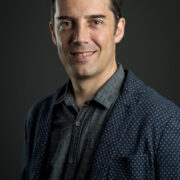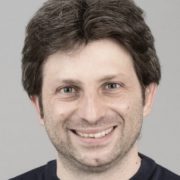Translational Philanthropy / The Micobiome Virtual International Forum
The new approach towards microbiome conferences

The challenge
Scientific exchange in the virtual space
The solution
Recurring bite-sized alternative to multi-day microbiome conference
The mission of the Microbiome Virtual International Forum (MVIF) is to advance the field of microbiome research by providing a more convenient, accessible, and globally inclusive platform for the dissemination of high-quality research and scientific networking. We are committed to promoting diversity of gender, race/ethnicity, and geography, and to actively engaging and promoting students and early-career researchers and scientists. We facilitate collaborations and knowledge exchange in a free and open-access setting with rigorous scientific and evidence-based standards.
The team
The Pioneers behind the MVIF

Levi Waldron
Co-Founder
Professor Waldron received a BSc in physics from the University of British Columbia, an MSc in physics from the University of Waterloo, and a PhD in wood science from the University of Toronto. He developed his interest in biostatistics and public health during post-docs at the Ontario Cancer Institute, Dana-Farber Cancer Institute, and the Harvard School of Public Health, before joining the faculty at CUNY. Important recent projects include BugSigDB: A Comprehensive Database of Microbial Signatures, and the Microbiome Virtual International Forum.

Nicola Segata
Co-Founder
Nicola Segata, Ph.D., is Professor and Principal Investigator in the CIBIO Department at the University of Trento (Italy) and Principal Investigator at the European Institute of Oncology in Milan (Italy). His lab (http://segatalab.cibio.unitn.it/) employs experimental metagenomic tools and novel computational approaches to study the diversity of the microbiome across conditions and populations and its role in human diseases. The projects in the lab bring together computer scientists, microbiologists, statisticians, and clinicians and are generally focused on profiling microbiomes with strain-level resolution and on the meta-analysis of very large sets of metagenomes with novel computational tools.